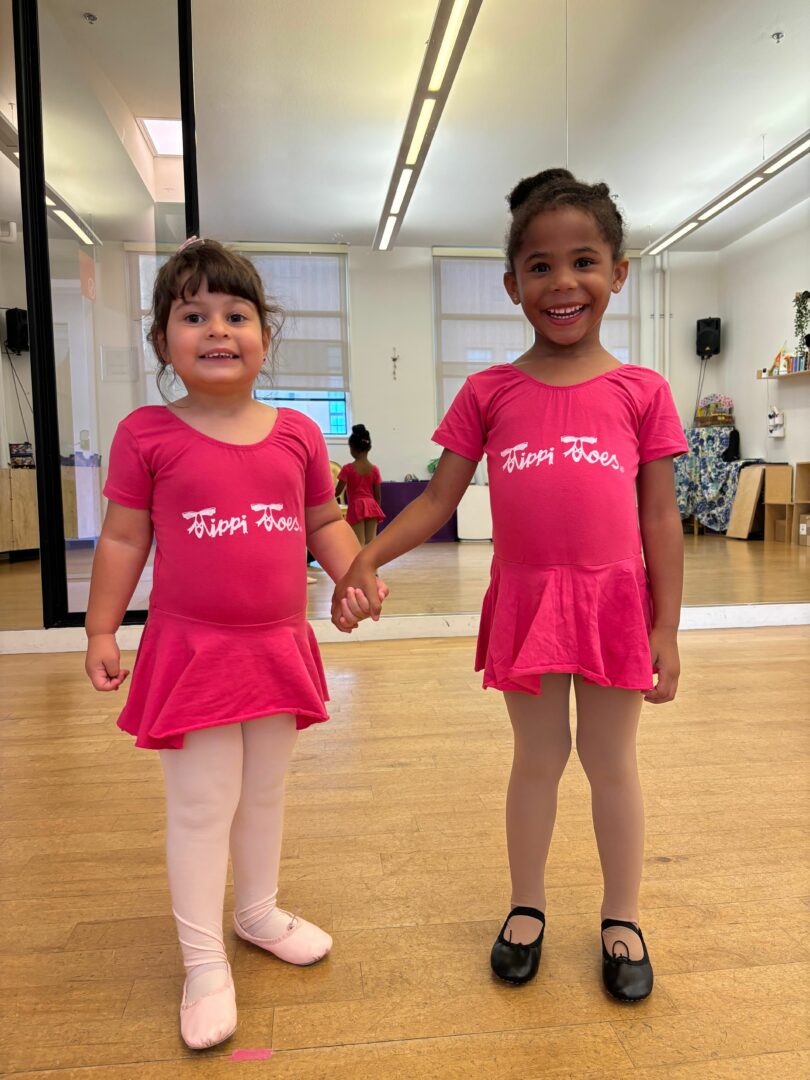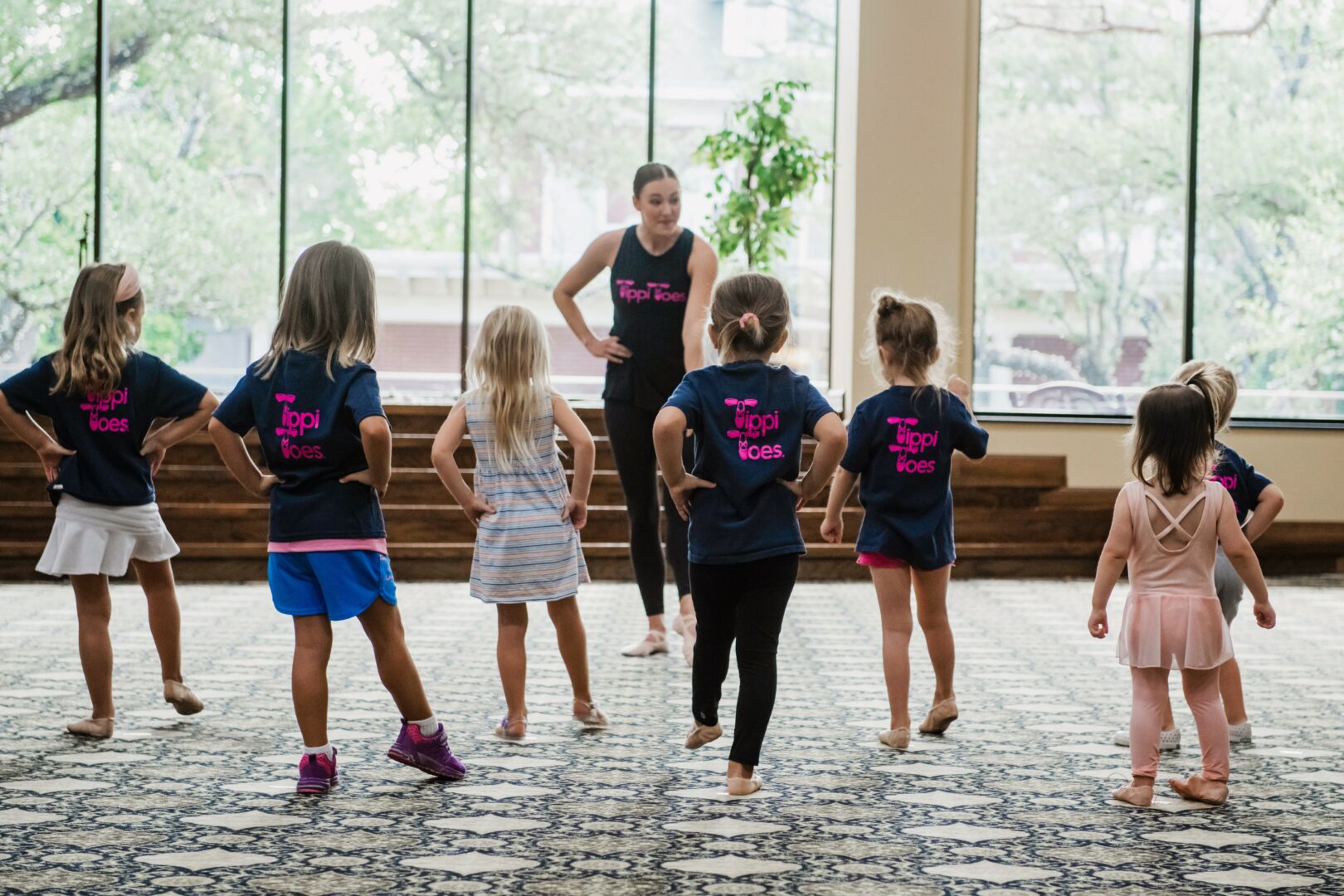We were lucky to catch up with Brittany Mustybrook recently and have shared our conversation below.
Brittany, first a big thank you for taking the time to share your thoughts and insights with us today. I’m sure many of our readers will benefit from your wisdom, and one of the areas where we think your insight might be most helpful is related to imposter syndrome. Imposter syndrome is holding so many people back from reaching their true and highest potential and so we’d love to hear about your journey and how you overcame imposter syndrome.
When I first transitioned from my 11 years in the military to civilian life, the shift was both exhilarating and daunting. In the Army, I knew my role. As a Communications Officer, I was responsible for leading teams, managing complex operations, and navigating high-stakes environments. But stepping into the civilian world, especially as the owner of a dance franchise, brought with it a new kind of uncertainty—a question I couldn’t shake: Was I ready for this?
Imposter syndrome crept in quickly. I was trading in camouflage for conference calls, command chains for customer relationships, and field manuals for franchise guidelines. Despite my successes in uniform, I wondered if those skills would truly translate. But as I began to reflect on my time in the military, I realized I already had the tools I needed. It wasn’t about learning something entirely new; it was about trusting the foundation I had built.
Leadership was my anchor. In the military, I’d led soldiers through challenging missions, ensuring every member of the team felt valued and motivated. I had to inspire confidence and cohesion in situations where failure wasn’t an option. Those same principles applied to building my business team. Whether I was hiring dance instructors, managing schedules, or connecting with parents, I leaned on my ability to lead with clarity, empathy, and purpose.
Another key skill I carried over was the art of team-building. In the Army, no mission could succeed without a unified group working toward a common goal. As a franchise owner, I realized that the same was true. My instructors weren’t just employees; they were partners in creating an environment where children could thrive through dance. By fostering trust, providing mentorship, and celebrating their contributions, I built a team that shared my vision and passion.
Overcoming imposter syndrome wasn’t instantaneous. There were moments when doubt lingered—when I questioned if my military achievements could truly serve as a foundation for entrepreneurial success. But I reminded myself that adaptability is one of the greatest strengths the military teaches. Whether it’s responding to a change in mission or pivoting to meet customer needs, the ability to assess, adjust, and execute is universal.
Today, as a business owner, I see the direct impact of those skills. My franchise has grown because I embraced my experiences, trusted in my abilities, and didn’t shy away from the challenges of leadership. Imposter syndrome taught me to value not just what I’ve achieved, but also the journey that brought me here.
To anyone facing a similar struggle, I’d say this: The skills you’ve built—whether in the military, corporate world, or another field—are more transferable than you think. Lean into them, trust the process, and don’t underestimate your ability to adapt and thrive.

Appreciate the insights and wisdom. Before we dig deeper and ask you about the skills that matter and more, maybe you can tell our readers about yourself?
As the owner of a Tippi Toes South Bay San Diego, I run a mobile dance company that partners with daycares, preschools, elementary schools, and community centers to bring high-energy, fun, and engaging dance classes directly to children in their everyday environments. Our goal is to make dance accessible and convenient for families while fostering joy, confidence, and creativity in every child we teach.
What sets Tippi Toes apart is how we meet children where they are—literally. By teaching on-site at schools and community spaces, we remove barriers like transportation, making it easy for families to introduce their children to dance. Parents love the convenience, and children thrive in familiar settings where they can express themselves, build friendships, and grow in confidence.
What excites me most is the impact we’re able to create. Dance isn’t just about steps and routines—it’s about helping kids feel celebrated and capable. Watching a shy child gain the courage to twirl with pride or seeing a group of preschoolers beam with excitement after performing for their families reminds me why I love what I do.
In addition to our weekly classes, we offer birthday parties and seasonal camps, like our upcoming Broadway-inspired winter dance camp. These events give children a chance to dive deeper into storytelling, creativity, and performance, all while having fun and building lifelong memories.
We’re also expanding our reach by partnering with more schools and community centers to bring our dance programs to even more children. Whether it’s introducing dance at a new elementary school or adding extra classes at a community center, growth is always on the horizon.
As a leader, I’m equally passionate about building an amazing team. Our instructors are the heart of what we do, and I’m dedicated to creating an environment where they can thrive, share their talents, and inspire the children they teach.
At Tippi Toes, we believe dance is for everyone. It’s about more than movement—it’s about building confidence, forming connections, and experiencing the joy of self-expression. That’s the mission we carry to every class, every school, and every community we serve, and I couldn’t be prouder to lead this journey.
If you’re looking for a way to spark joy and creativity in your child’s life, we’d love to welcome you to the Tippi Toes family!

If you had to pick three qualities that are most important to develop, which three would you say matter most?
Looking back, there are three qualities that have been the foundation of my journey: adaptability, leadership, and relationship-building. These are the skills that helped me transition from military service to entrepreneurship and continue to shape how I grow and lead my business today.
1. Adaptability
Life and business are unpredictable. During my time in the military, I learned to think on my feet, adjust to changing circumstances, and find solutions even when the path ahead wasn’t clear. That skill was invaluable when I became a business owner. Whether it’s navigating operational challenges or pivoting to meet customer needs, adaptability allows you to embrace change as an opportunity rather than a setback.
Advice: Embrace challenges and uncertainty—they’re opportunities to grow. Start small by stepping out of your comfort zone regularly. Try new approaches, take calculated risks, and remind yourself that flexibility doesn’t mean weakness; it means strength.
2. Leadership
In the military, leadership wasn’t just a role—it was a responsibility to my team and our mission. As a franchise owner, that same mindset drives me. Leadership is about more than giving directions; it’s about inspiring others, setting the tone, and building a culture where everyone feels valued and motivated. It’s what keeps my instructors engaged and my business thriving.
Advice: Leadership starts with self-awareness. Take the time to understand your strengths, your values, and how you communicate. Invest in others—listen to their ideas, support their growth, and recognize their contributions. The best leaders don’t have all the answers, but they create an environment where the answers can emerge.
3. Relationship-Building
No matter how good your product, service, or strategy is, it’s the relationships you build that create long-term success. Whether it’s connecting with parents, partnering with schools, or mentoring my team, relationships are the foundation of my business. Building trust and genuine connections has opened doors and created opportunities I couldn’t have predicted.
Advice: Focus on people. Listen actively, communicate openly, and always follow through on your commitments. Networking isn’t about collecting business cards—it’s about building authentic, mutually beneficial relationships. Whether you’re just starting out or scaling a business, those connections will be your greatest asset.
4. Final Thoughts
For anyone early in their journey, my advice is this: trust in your ability to grow. You don’t have to have all the answers right away. Focus on building these foundational skills, and know that every challenge you face is a chance to develop them further. Remember, success isn’t about perfection; it’s about progress. Keep learning, keep adapting, and stay focused on the people you serve—and you’ll go farther than you ever imagined.

Who has been most helpful in helping you overcome challenges or build and develop the essential skills, qualities or knowledge you needed to be successful?
Success in business, especially one that’s so personal and community-focused, wouldn’t be possible without the incredible people around me. One person who deserves a special shoutout is my General Manager, who not only handles the day-to-day operations of our Tippi Toes franchise but also serves as my sounding board and trusted advisor.
Her dedication to excellence keeps our business running smoothly, and her ability to listen, brainstorm, and offer fresh perspectives has been invaluable. Whether we’re strategizing about growth, working through challenges, or celebrating wins, her support and insight remind me just how important it is to have the right people on your team.
To me, she’s more than a manager—she’s a partner in creating a business that inspires joy and confidence in the children and families we serve. I’m grateful every day for her hard work, creativity, and belief in what we’re building together.
Contact Info:
- Website: https://www.tippitoesdance.com/sandiego
- Instagram: @tippitoes_southbaysandiego
- Facebook: https://www.facebook.com/tippitoessouthbaysandiego
- Linkedin: https://www.linkedin.com/in/brittany-mustybrook




so if you or someone you know deserves recognition please let us know here.




